

Justin Fung
Patricia Tse
Christine Song
Corina Chen
Benjamin Chow
Hannah Kuo
Justin Fung
Carissa Samuel, Christine Youn
Kim Hwang Yeo
Hannah Kuo
Grace Xia
Charis Lee



Justin Fung
Patricia Tse
Christine Song
Corina Chen
Benjamin Chow
Hannah Kuo
Justin Fung
Carissa Samuel, Christine Youn
Kim Hwang Yeo
Hannah Kuo
Grace Xia
Charis Lee

Stuffed animals, vanilla ice cream, and rewatched Netflix shows testify that we need a response to our sorrows and struggles. We become overburdened by the injustice, grief, and strife that perpetually fill the news and, unfortunately, our lives. Amidst these afflictions, our longings for solace and safety become apparent.
In the Old Testament, Job cries out to God after losing his family, his belongings, and even his health. He longs for consolation and a response to his trials but instead finds himself stuck in a lengthy argument with his friends. Similarly, we too cry out for an end to our struggles but are instead met with incessant commotion. God, however, cuts through the noise and demonstrates that He cares for mankind by attending to our needs and, ultimately, by sacrificing His Son to put death to death, establishing an end to the suffering of the world and offering lasting comfort to all people.
In keeping with this theme, I present Comfort: a manifold depiction of the comforts we seek through the lens of poetry, prose, photography, artwork, and a thoughtful layout. Authors have chosen to illustrate their perspectives through various lenses like the familiar pursuit of success, the complex search for community, and even something simple like walking to school.
In your reading and contemplation of the works presented here, I invite you to discuss the importance of comfort with your family and friends. Together, we may strive to know the unknown God and to find comfort in Him who offers to be with us always, to the end of the age.
Unknowingly,
Justin Fung Editor-in-ChiefEditor-in-Chief
Justin Fung
Executive Editor
Corina Chen
Executive Designers
Charis Lee Reba Sy
Associate Editors
Benjamin Chow
Christine Song
Christine Youn
Christy Koh
Hannah Kuo
Associate Designers
Patricia Tse
Madeline Kim
Business Manager
Phoebe Chen
Social Media
Charis Lee Reba Sy
To An Unknown God is not affiliated with any church or any religious group. Opinions expressed in articles do not necessarily represent those of the editors. We are completely student-run and funded partly by the student body as an ASUC-sponsored student publication. Funding is also provided through individual donations. Distribution is free while supplies last. To contact us, please email taug@berkeley.edu. Visit us at toanunknowngod.weebly.com/.
* Not Photographed: Christine Song, Christine Youn, Madeline Kim, Phoebe Chen, Reba Sy
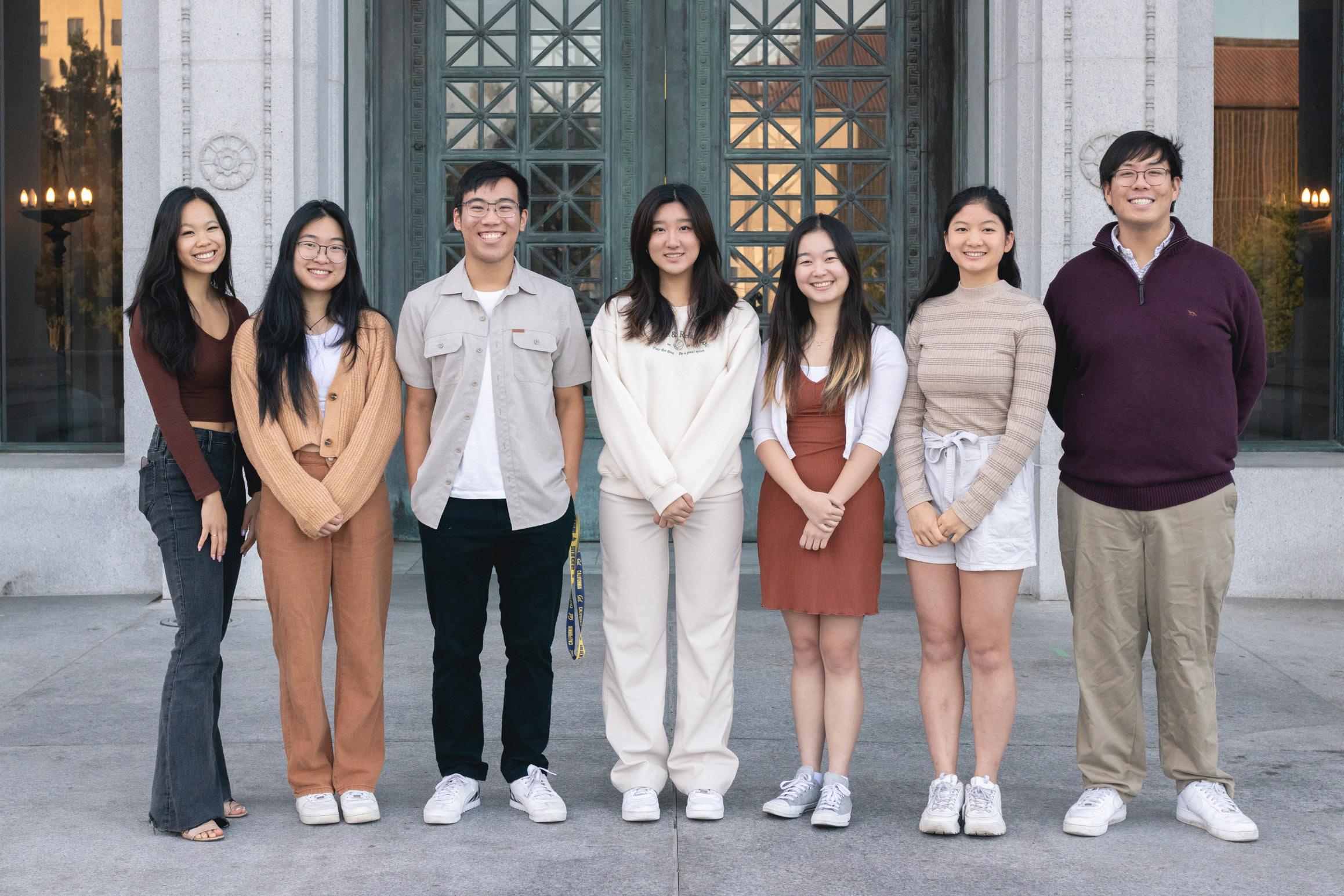
“Therefore, the One whom you worship without knowing, Him I proclaim to you.” —Acts 17:23
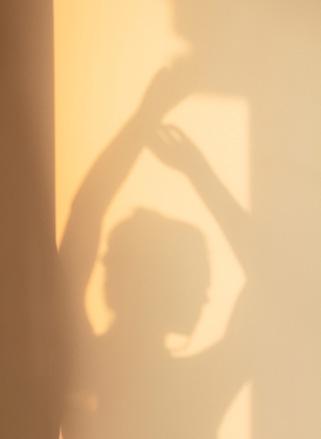
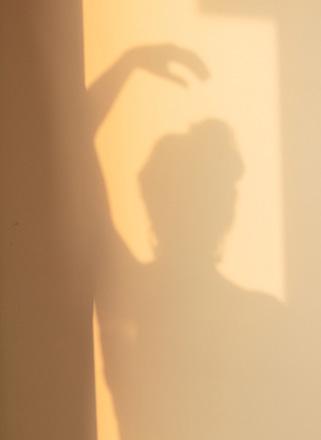
Sometimes, I feel guilt and regret and most other times, I feel nostalgia. What follows from nostalgia is a desire to re-experience moments as I remember specific memories, sensory experiences, or interactions with people from the past. While the initial desire to return to the past is involuntary, I remind myself that redoing what I had done in the past would never be the same as the past itself.
Even if I could put myself into the same situation I was in years ago, I, have changed. I no longer see the world the same way I did when I was in high school or in middle school. Likewise, the people who were part of that experience are probably not the same either. There’s been a few occasions where I’ve had to interact with that incongruence of realizing that my memory of something no longer matches the present situation. For example, I always remembered a specific middle school friend as being hilarious and in-their-own-world. When I finally met with them to reconnect, I realized that the person standing in front of me was a completely different person from the person I remembered. Strangely, I found it difficult to interact with them in the light-hearted, immature way we used to. What used to be a relationship that I was comfortable in now felt awkward and forced.
With everything else in the world, we can be confident that change is inevitable. That’s just the nature of our world. Entropy exists, seasons change, friends come in and out of our lives, things live and die (GPAs change). Yet, there is one thing that is constant—God. The One who was there before all things and will be
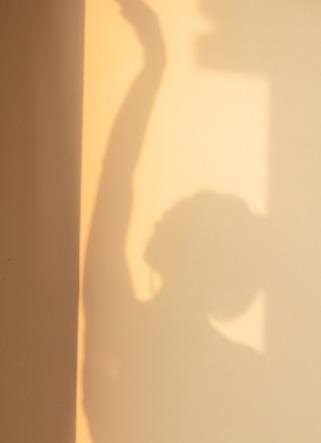
there even when everything else goes.1
“But the great thing to remember is that, though our feelings come and go, His love for us does not.”2
Because of His ever constant nature, we are able to experience true comfort by trusting in Him. I’m not saying that life will be comfortable. Rather, we are able to experience freedom and peace even as our life seems to be at its lowest. The reason is that we know that God is there with us, loving on us, and looking out for us, such that even as we struggle with the difficult times in life, we are confident in our God and His steadfastness.
Without a doubt, the uncertainty and incongruence between past and present has affected the way I perceive my life. As I live my life in the present, I worry about the future, wondering if maybe in the future, it will be completely different from the present. What if my friend won’t be part of my life later on? What if my partner and I break up? What if the industry I’m currently trying to go into falls apart? What if my body breaks down? At any moment, I might be comfortable in a certain situation, but in the future, that will change since I, the experience, or people could change. Yet, in my lowest moments when I am most lost and confused, I am able to find true comfort and peace because I am able to fully relinquish and surrender my desire for control; when everything seems to be falling apart and I am completely helpless, all I can do is to turn to God since He is the only thing that will never fail.
My natural tendency is to fixate on the unknown so I can best prepare for the future. With my faith’s assurance, I can move beyond my natural tendency and stifle my pessimism because God reminds me it’s not as dire as I first believed.
1 Revelation 22:13 2 Lewis, Mere Christianity (1952)


Everything I have grown up with or experienced since my childhood has taught me nearly the opposite of what this line from CityAlight’s “The Goodness of Jesus” conveys.
There is comfort in the small smile that blooms across my face when the morning sunlight tickles my face as I walk outside. There is comfort in the hug my mom wraps me in every time I visit, squeezing me just tight enough to say welcome home. There is familiarity in the ridiculous jokes my brother and I share, falling into a simple rhythm of banter only the two of us can recognize. There is peace in the laughter that escapes from my lips as I catch up with old friends, reminiscing about memories and retelling stories that will never grow old. There is complete rest in the honest talks with my closest friends as I stop to process emotions and thoughts I had not even been consciously aware of before. If comfort is rooted in all these intimate human interactions and made tangible through warm physical responses, from smiles to hugs to laughter, how exactly, then, would this same comfort be found in our tears?
Speaking from personal experience, comfort does not flow out in tears. Isolated in my room and surrounded by the quiet stillness, tears stream down my cheeks in terrible bit-
terness, overwhelming loneliness, and incessant anxiety. Yes, my tears are warm, but they are not the same warmth felt in holding hands, tight hugs, and full smiles. My tears are hot from burning anger, bottled-up emotions bursting out uncontrollably. In all manners, my tears are uncomfortable: to manage, to come to terms with, to make sense of. They are unwanted and unknown, unfolding a chaos too difficult to tame and unlocking parts of myself too confusing to name.
I could drown in my tears in self-pity, which was a pattern I often found myself cycling through during my high school years. As I have been maturing in my faith, however, God has been graciously showing me ways to meditate on His Word instead, where it reminds me that my tears are a symbol of God’s strength in my weakness. In the tearful, vulnerable moments, I am humbly brought back to the sobering truth that only the LORD is “my God, my rock, in whom I take refuge.”1 Tears seem to be so far from the physical representation of comfort, especially in my self-centered nature to put my desires first. But when I begin to shift my gaze unto God by acknowledging His presence in my life, tears turn into a recognition of surrender and acceptance.
I learn that God takes full control in the chaos, and His perfect peace surpasses all my other fears and uncertainties. I find tranquility in the tears when I am reminded of my identity as a child of God—the name He so graciously gave me.
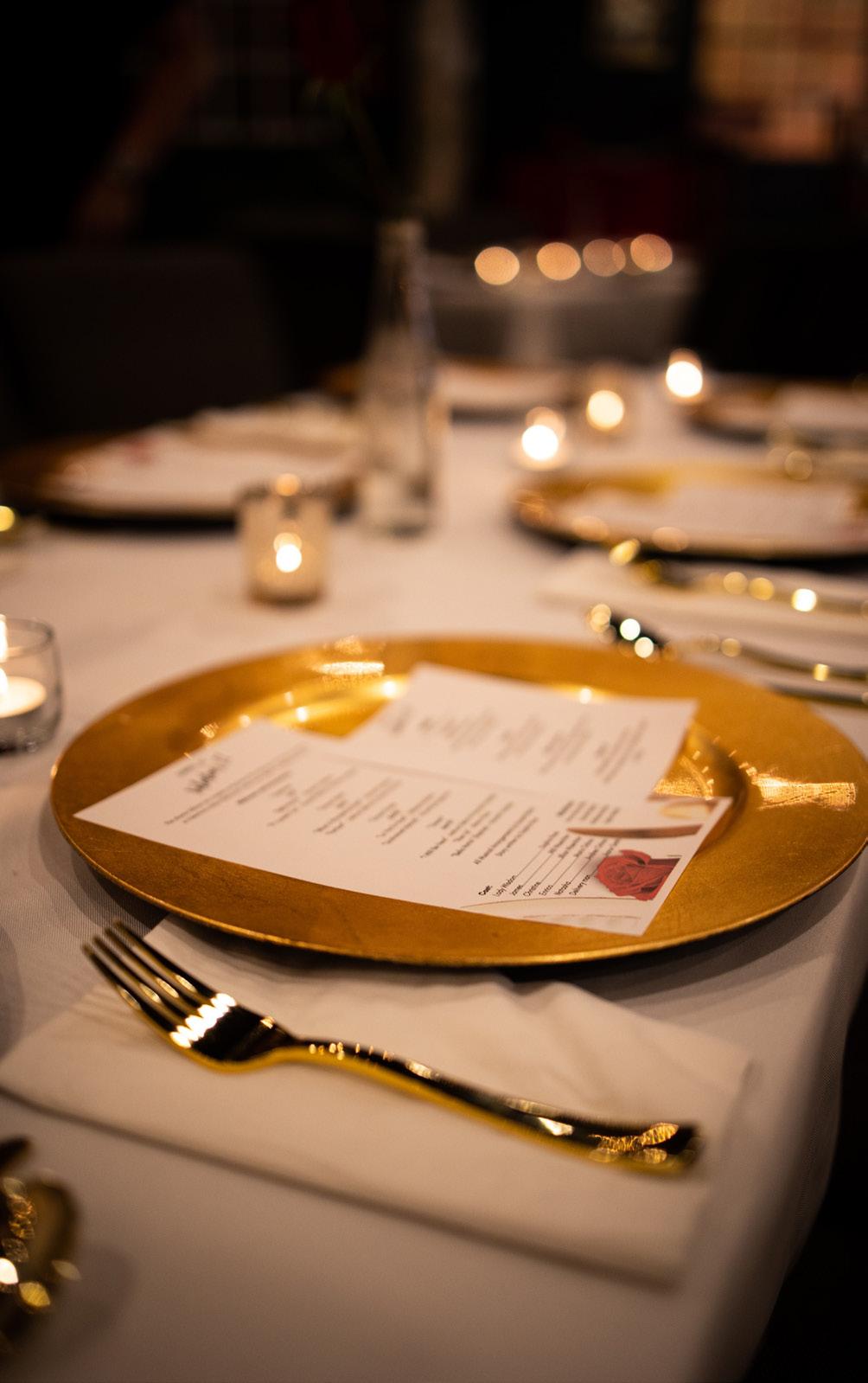 Words: Corina Chen
Words: Corina Chen
Corina Chen is an English and Linguistics double major who loves telling stories and helping others tell their own.
“Are you wearing a wig?” I blurted out. I was six, maybe seven years old at the time. Our server blushed furiously, retreated to the kitchen, and for the rest of the meal at Sweetie Pie’s, we enjoyed a new server’s attention. My sisters laughed uproariously while I basked in the admiration of our family friends.
“I can’t believe you said that,” the older brother of my best friend said, grinning. Because I was six and my idea of starting a romance was as simple as talking to the opposite sex, I was thrilled. Our server, we’d reasoned only minutes before, had a head of lush, grey curls—a sign of aging, perhaps—sitting atop a youthful face—a clear sign of youth. Obviously, distinguishing between age, good genetics, or potentially dyed hair was simply too great a dilemma to solve with conjecture. Forget making the server uncomfortable with the wig question—I was being found hilarious, and for that, I was thriving.
Looking back, I can see how I was probably the root of another person’s insecurities. I also realize how uncomfortable a situation that was for the server—and probably my parents. A table full of tittering children, laughing at another person’s physical appearance.
We are often our own self-starters when it comes to uncomfortable situations. Whether it’s something we say, don’t say, or something we do, awkward moments are a constant experience. They rise when we find we lack the right words to comfort or confront, and they linger when we are unable to mediate a situation. More often than not, uncomfortable situations come up because so many of us are still learning the difference between humor and grace, thoughtfulness and silence.
Being an instigator of awkward situations hits harder because I’ve always loved comfort.
As a kid, in addition to being so blunt, I was also severely dedicated to the six blankets I constantly dragged around. Like Linus from the Peanuts comic strips, I always had my security blanket with me. Whenever I took a nap, every single one was swathed around my body until I looked as though I was in a small nest. So many blankets suggest I’m constantly cold—which is true—but also point to a greater, more basic fact: I love comfort.
We are born craving comfort. From thumb-sucking to naps—a habit often savored into adulthood—we insert comfort into our day to day without much thought. Comfort becomes a given. And, as such, people who love inflicting or experiencing pain are called sadists or masochists, respectively, and are a unique, rather terrifying exception. How much pain we can handle is often measured with the question, “What’s your pain tolerance?” People who can tolerate lots of
pain are like my mom—their pain becomes invisible in the specter of their endurance—while people more sensitive to it reveal their burdens more quickly. Whatever end of the spectrum we fall on, high pain tolerance or low, is still in direct conflict with our aversion to discomfort and our desire for ease.
Several years ago, I heard a sermon about getting sticky. We were reminded to move past the comfortable limit of small talk, condolences, or quick lunches—as important as they are—and be willing to press into the less easy moments that take more time. Getting sticky is a complete contradiction to avoiding pain. The stickiness of undeserved blame, inadvertently hurt feelings, or poor decision making is hard to rub off. The longer our hands are in the mess, the more pain we are encouraged to tolerate.
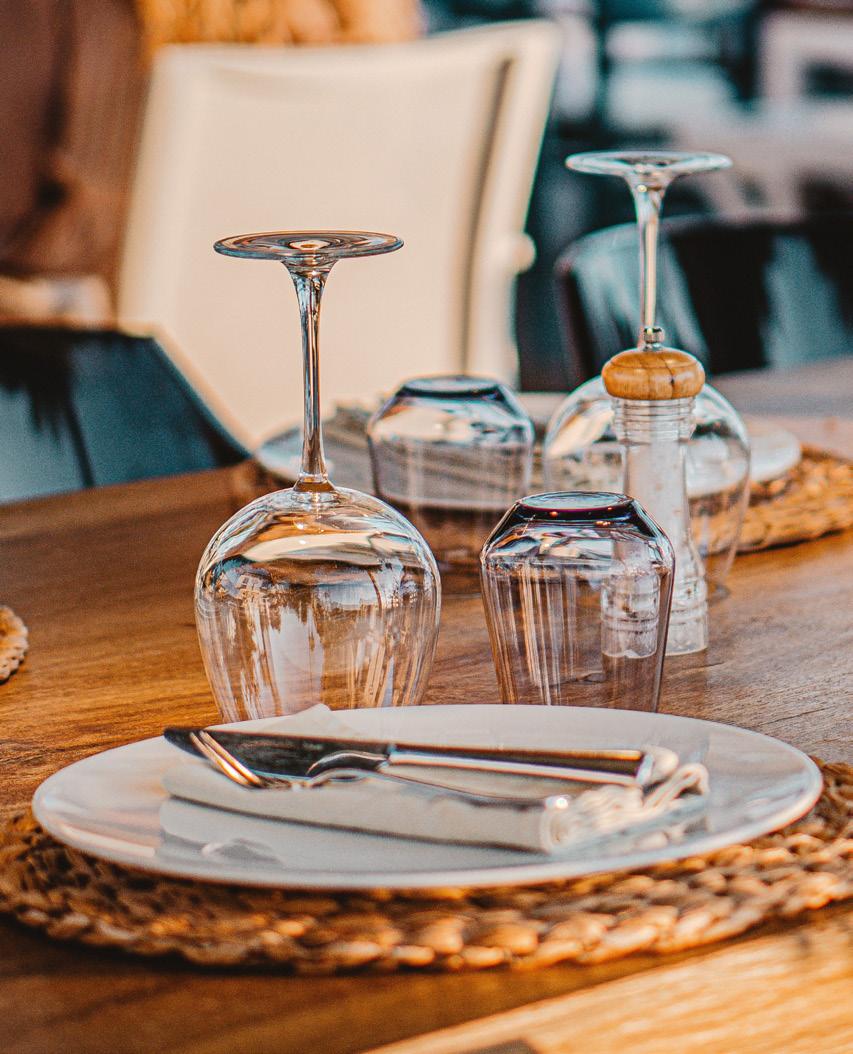
I watched as my parents visited their dying friend in hospice, willing to wade through the literal, uncomfortable silence of sitting with a man who had lost his ability to speak. At other times, I talked with a childhood friend who was willing to call me out on my bullshit: painful then, but a gift now.
It is in the stickiness I learned, as my pastor encouraged me, that closeness and change are forged in the spaces of discomfort. Change can’t occur in a
vacuum. Rather, the chance to impact, say, the people on the fringe, or the classmate who lacks social skills, comes when we are willing to draw near. Talk to them. Help shed their discomfort by taking it on ourselves, so they feel more comfortable.
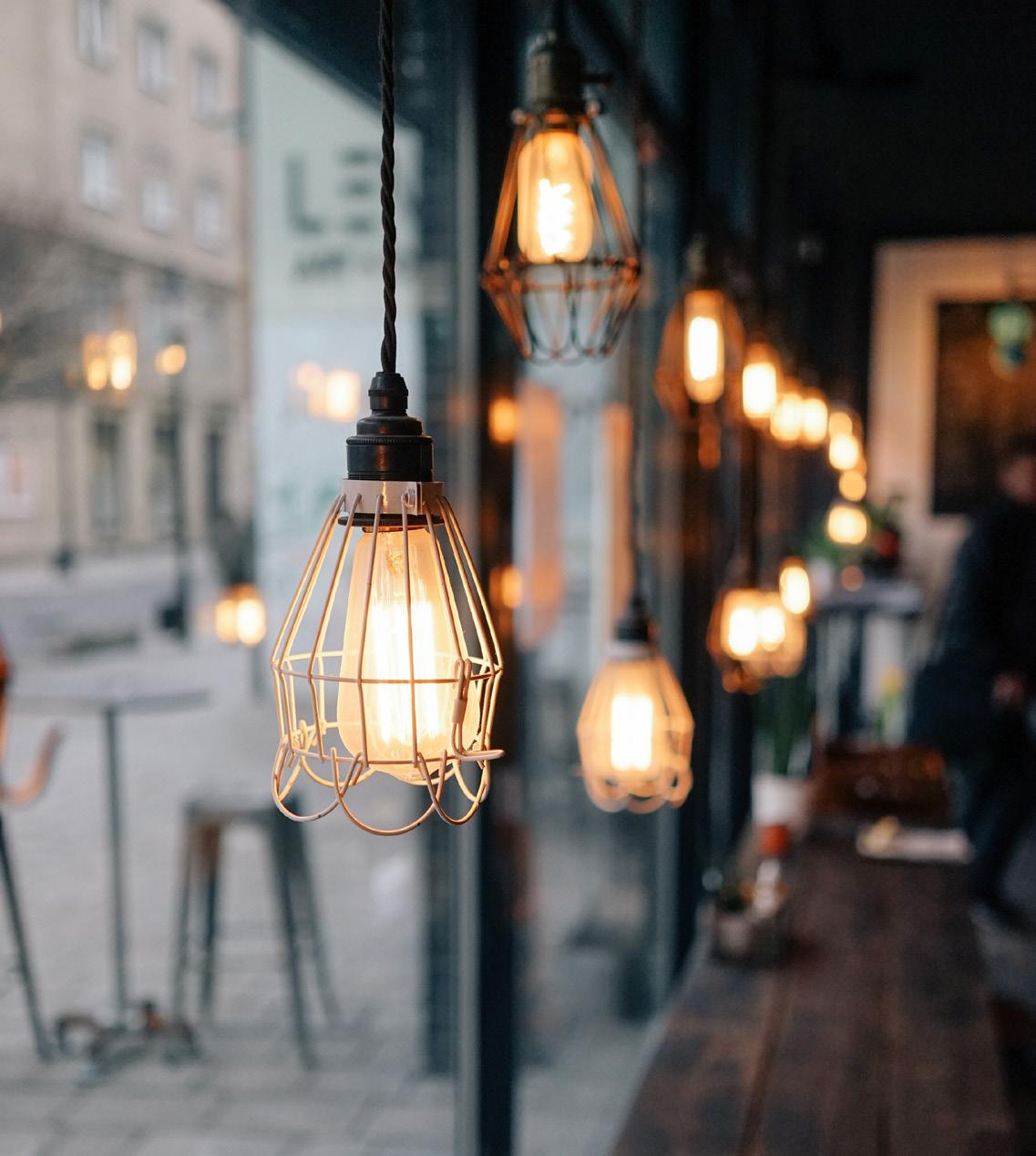
This principle of discomfort for another’s ultimate comfort isn’t new. It’s learned. An impulse to draw near to another in their ickiness is completely opposite to our natural instinct for comfort. It is far easier for us to flee the room than stay seated. I only began learning to sit in another’s discomfort when I was the recipient of such examples. This lesson in empathy was highlighted for me when I realized my abnormalness for crying—often in public spaces. I cry with great abundance. The student union, gym, walk back from class, or even Target—they’ve all seen my tears—and they don’t all come with free tissues.
Yet in those moments of freefall, when I can’t contain my struggles, I find that my roommate stops her work to listen, my friend lends me her room to rest in, and my sister shares her own stories to help me with mine. Thrust into my pain, they make uncomfortable choices to comfort me. My best friends give me grace before guilt, help rather than hell. (And always tissues for my tears.) My older sister sticks around my stickiness. Unlike the waiter I embarrassed when asking about his wig, she would rather serve my table than leave.

You needn’t tell many people here at Cal, myself included, to strive for greatness. I often catch myself daydreaming in class of the things that “could be.” In my literature courses, I yearn to be a great writer, the likes of Steinbeck, Austen, or Dostoevsky. In my economics courses, I’m captivated by thinkers like Keynes and Marx, whose writings inspired revolutions and defined economies. When I’m particularly captured by a text or an analysis thereof, I’ll think to myself: how do I get to this level? Can the genius of these thinkers be learned? Replicated? How can I rise to be a writer of this prominence?
For others here at Berkeley, dreams of greatness come through other means. Golden Bear Orientation is a weeklong program mandatory for new students at UC Berkeley. Hectic and overwhelming, it’s a proper introduction to the University of California. As an orientation leader, I lead freshmen who seem to grow more ambitious and self-confident each year. Strong, passionate personalities with numerous interests collide that first week of school. I’m energized just thinking about it. This year, I have one student who wants to be the CEO of a Fortune 500 company. On the other side of the spectrum, I have a student who wants to be a professional esports athlete. College has assembled us at a peculiar time. We’ve all the passion in the world, and yet, while some of my peers possess a clear vision of their future, for most of us, our futures lie uncertain.
For myself, thoughts of the future can often be coupled with anxiety. Though I have big dreams for where I’ll end up, nothing is certain. Yes, I want to achieve greatness, but through what means—well, I certainly don’t have that answered yet.
I bring these ideas of greatness and the future into conversations with friends, teachers, and mentors frequently. Even this
past Thursday, I grabbed coffee with one friend whose remarks struck me in particular. We’re both in our final years of study here at Cal. He does his studies in the history department. In our conversation, he also expressed the desire for greatness. In his words, sure, some part of him desires to be ‘immortalized’ in history books, be it through some contribution of writing, or even through the political sphere. And yet, more recently, he’s come to realize he may just want a quieter life for himself as opposed to a life of fame—a life in which he has a stable job and a family. I must confess, I too see the appeal in these comforts.
The charm of normalcy seems to grow stronger the older I become. Now, there is certainly some small part of me that holds contempt at the idea of living a ‘normal’ life, but these are fading remnants of a misplaced religious zeal from high school. In this current part of my life, I am beginning to understand that living a modest life does not equate to living a lesser life. You needn’t trade one for the other at all.
I’m optimistic that a ‘normal’ life won’t doom me to a lack of greatness. Maybe one day I will indeed become a great thinker or writer, but, in everyday life, I tend to overlook greatness when it’s right in front of me: great friends, teachers, mentors, pastors, fathers, mothers, brothers. As I dwell on personal greatness, I am reminded of these numerous great people in my life who are great, not in spite of their modest positions, but exactly because of their much needed presence in them. Perhaps this kind of ‘everyday greatness,’ a kind of greatness separate from ambition, can be solace from the burden of achievement. When we are present in our relationships with one another, our dreams of greatness can cease to be a source of uncertainty and begin to become a source of comfort.
Words: Hannah Kuo
I stood staring at the enormous plaque before me.
HALL OF HEARTS.
Finally, after months of struggle and an arduous journey, we’ve arrived. His voice had called each of us, and after we met him, he had promised we’d find answers and peace here. He better have been right about this.
As I took in the plaque, I wasn’t sure how I felt about it. My gaze drifted to the rest of the building. Huge stone, a large wooden door with the imprint of a hand in the center. I glanced at my surroundings. Peaceful ocean to my left, acres of green fields to my right. Blue skies above me. Everything was picturesque, save for this… this… I wasn’t even sure what to call it. An ominous block of stone?
“Do you think they have actual hearts inside?” Adam whispered teasingly to me.
I elbowed him hard. “Stop scaring me.” I walked up to the door. “Let’s go.”
I placed my hand against the wood, and the door slid open to reveal a brightly illuminated hall made of crystal.
So, that explained the stone.
We all stepped inside, glancing around furtively. Everything about this place seemed suspicious. With what we’d all faced on the way here, this seemed too peaceful.
The tessellated walls shimmered with every color of the rainbow as we continued to step forward slowly. Even the floor made my eyes widen in awe; it seemed to be made of pure white marble. But what drew my attention the most was a lone pedestal standing at the other end of the room. I walked up to it and tilted my head to admire the porcelain vase displayed on top of it. It was pure white, about the size of a small flower pot, laced with gold. Was I allowed to touch it? I reached out a hand and brushed my fingertips lightly along the side of the vase. It was warm to the touch, and even though my fingers barely touched the vase, it was like I could feel my heartbeat in my fingerprints.
“Guys, what do you think about…” My voice trailed off as the vase suddenly changed on its own. I jerked back in shock as I watched color bloom on the vase, spiral once in a firework, then begin to shift.
My jaw dropped as scenes painted itself on the pot. My amazement darkened as I recognized my friends in painfully familiar stories.

Sarang’s1 rejection.
Crack. The slightest fissure appeared at the lip of the vase.
Li’s2 abandonment. Crack. As my breath quickened in panic, the scenes played faster and faster, matching the rhythm of my pounding heart.
1 Sarang means “love” in Korean
2 Li means “strength” in Chinese
Simcha’s3 grief. Crack Faith’s death.
Just as I took a breath to scream, the vase exploded and I jumped in shock. I watched the glittering pieces clatter to the ground singing the distorted symphony of no return. I felt a strange sort of emptiness, like someone smashed the turtle shell around my heart to smithereens, leaving every emotion exposed. My forehead was plastered with sweat as my gut struggled to process the flood of buried emotions.
Suddenly, this all made sense. The Hall of Hearts. The scenes that played.
This shattered vase.
“Ciela—Are you okay?”
“Don’t come here!” I shouted to my friends as I struggled to process what I saw. My heart was not broken. There was just no way. I was fine. I am perfectly fine.

Out of nowhere, thorns sprang up from the ground and snaked their way up the pedestal and up my legs. With shaky fingers, I wove my hand past the reaching thorns and pushed a few of the vase shards together, trying to see how they fit. This wasn’t broken. This wasn’t shattered. “There’s no way,” I said shakily, a tear slipping down my cheek. I am not broken. “I’m stronger than that.”
A gentle hand touched my shoulder and I did my best to shield the scene—broken shards, slices of my past—from whoever stood behind me. Alarm zapped every bone in my body, but the presence was familiar and warm. “Yes?” I asked, my voice tight, unsure of what would happen.
“Look at me,” a deep voice said.
I hesitated. When I turned around, the Shepherd was looking at me with kind eyes. His steadfast gaze at me brought me back to when I was young. I had fallen, scraped my knees, and done my best not to cry, but as soon as I’d seen my mom, all the pain came rushing in and I bawled my eyes out.
It was the same now.
“It broke,” I sobbed. “I - I tried to put it together, but – hiccup – things kept happening and – and –”
The Shepherd bent down and began clearing away the thorns as though they were specks of dust on my pants. I probably would have believed the thorns weren’t real from the way he brushed them off if I didn’t see the scratches on his hands afterwards.
He pulled me into a hug, and I cried harder. From the heaviness of his breath, I was surprised to find he was crying too.
“It’s not the end,” he said after a long while. He wiped my face with his sleeve as I struggled to control my breath. “I always keep my promises.”
3 Simcha means “joy” in Hebrew
4 Nehemiah means “God comforts” in Hebrew
He bent down to collect every single piece of the vase and placed them back on the pedestal. One by one, he began to line the edges and, as I watched, the shards melded together until the entire vase was whole again. My jaw dropped in shock and I took a step closer, trying to find any piece of evidence that this vase was once broken.
“There’s no cracks!” I exclaimed. Faint gray etchings caught my eye and I frowned. “Where did these pencil marks come from?”
“Child. This vase is whole again, but there are always scars. You can’t change the past. Your paintings are all still here. But know that with every broken brushstroke, I send someone to mend what is broken.”
“But it didn’t just crack, the vase exploded,” I said. “You didn’t glue the cracks together after Sarang rejected me. Or after Li left. You waited until after all that happened and the vase – I mean, I crumbled.”
He placed a hand on my head. “No, I didn’t, but if I had at the time, you wouldn’t have wanted to come here, and we wouldn’t have met.”
I stood thinking about what he said. “Your vase is still unfinished,” he continued. “I come here every day to decorate and design the vases.”
I frowned. “What vases? There’s just one.”
The Shepherd’s eyes glinted. “What do you think your friends are doing right now? You are seeing something only you and I can see.”
I glanced over his shoulder to see my friends facing the walls of the hall in various places, their postures rigid as if frozen in time. Was this all happening in my subconscious? I settled for the cliché explanation that something surreal was happening.
“Do you paint?” I asked drily.
The Shepherd looked at me. “Sometimes.” A couple quiet seconds later, he said, “Your vase is mended. There is no reason for us to stay here. Your friends are almost ready as well.”
I turned back to the Shepherd. “But you haven’t shown us everything yet; you haven’t answered all my questions. There’s still so many things I want to ask. I want to see more.”
“In due time, child,” he said.
“Am I never going to see you again until the end of time? That’s how the story goes.”
He smiled. “I’m with you every day. As the legends go, ‘you just need to have the eyes to see it.’ But there is someone waiting for you at home. He will be there for you as I am.”
“Who is it?” I asked as we made our way to the door. “What’s his name?”
The Shepherd’s eyes twinkled. “His name is Nehemiah.”4
Hannah is a second-year Linguistics and Computer Science major who enjoys exploring reality from the realm of imagination.



Don’t shop on an empty stomach.
A hungry stomach, a lack of a clear list, and unlabeled aisles make it difficult to shop for just the right amount of food at Costco. Popchips, Oreos, and trays of salmon fill our carts as we meander through the unlabeled aisles attempting to procure a complementary set of groceries for the upcoming week. And the samples, oh, the samples! The samples call out to us and invite us to partake in undiscovered delight, but we can’t try everything—can we?
Though we may overindulge ourselves on Costco samples, here at Berkeley we respond quite differently when we go shopping on Sproul. Clubs and friends solicit offers of connection and fun. Fraternities and prospective families call out, vying for attention. Tantalizing candy and free T-shirts offer promises of sweetness and a wardrobe expansion. But no student can choose them all and we close ourselves off from these offers by arming ourselves with sunglasses, headphones, and a steady gait.
Whether Costco or Sproul, agents evaluate prospective offers and seek to fill themselves with the best basket of goods. And yet—we purchase too much food and end up throwing it away, or we bottle up our desires, hoping to contain them. Unfortunately, failing to purchase vegetables does not address our need for them, and speeding through Sproul does not address our need for community.
Though deprivation and overconsumption seem acceptable in the moment, they ultimately result in suboptimality. In response, we may make lists and go shopping with friends who give us a funny look if we take three bags of Brownie Brittle. Although these strategies work fairly well (except when our friends are starving), they are responses to symptoms, not preventative countermeasures that solve our core issue. Lists and friends do not fill or incline us to what is good; they cover the outward effects of a longing heart but don’t resolve it.
It seems strange that we should be filled before entering a market because we generally see this as why we enter them. Yes, we enter markets to seek the good, but we should not over-expect what they can deliver. To demand too much of clubs, fraternities, or a new microwavable Costco dinner is a recipe for


disappointment and despair. On the other hand, being filled frees us to seek the good with clear-headed consideration, but not in a way that needs to fill us; the Christian tradition describes this as joyful contentment. Saint Augustine captures this when he says, “You have made us for yourself, O Lord, and our heart is restless until it rests in you.”1 We long for something beyond creation because God has created us for himself and we have fallen from our previous communion with God. Though we are the ones who have distanced ourselves from Him, God graciously satisfies our longings and invites us to learn prudence and gain intuition so that we may be empowered to fulfill our ordained end—to live for Him.2
Fortunately, He offers this opportunity to us all. God invites you and me to taste and see that He is good, to drink of the well that permanently satisfies thirst, and to feed on Him who is our daily bread.3 God, as our Creator, knows us far better than we do and supplies us with our needs, even when it costs Him his Son. He fills the core of our being with Himself by dwelling in us through His Holy Spirit, inclining us to the highest good. We are gifted with the community we long for and seek after on Sproul and He gives us friends and family, His church, to accompany us. Along with family, He directs us by giving us a list of which goods to seek.4 We no longer need to be pulled away by our unfulfilled desires but are instead directed by God’s promises of the good, the true, and the beautiful. These gracious gifts are offered to us so that we may walk the road of life content, properly holding onto earthly good until we are at Home, face to face with our Creator. He frees us to live, shop, and enjoy life with a full heart.
Costco, here we come.
1 Augustine, Confessions



2 Proverbs 8:1-5 ESV
3 Psalm 34:8, John 4:14, John 6:35


4 Matthew 6:22
Justin is a fourth-year Data Science and Economics major who enjoys Costco hotdogs, singing, and drinking water.
I walked into the room, staunch in my conviction that I could and would be social today. It was a fellowship meeting filled with people I hadn’t met before and it was my first year at Berkeley. I wanted to have the kind of social life that I’d seen in movies and TV shows about college. I walked in with high hopes. Six minutes later, those hopes were six feet underground.
I remember leaving my first fellowship meeting at college as a freshman. I walked past one of the benches in front of the architecture building, and it seemed to call to me. It was night. I sat on the bench and broke down crying.
The fellowship had so many people who already knew each other and spoke in groups together. I spoke to one or two people but I definitely was not meeting the success metrics of my carefully laid “Cal Social Life” plan. I did what any insecure college student would do. I reached into my pocket and pulled out my iPhone to pass the time away while projecting an image of security and productivity. I decided to shrink into my own world so I wouldn’t be rejected by the world around me.
I went back to my dorm to write my heart out about how I didn’t think I was going to belong here at Berkeley.
I also wrote about how toxic the experience felt to me. It was like a competition, fighting for each other’s attention, proving to others that you’re someone worth remembering. If you didn’t have a put-together elevator pitch of who you were, you would simply not exist.
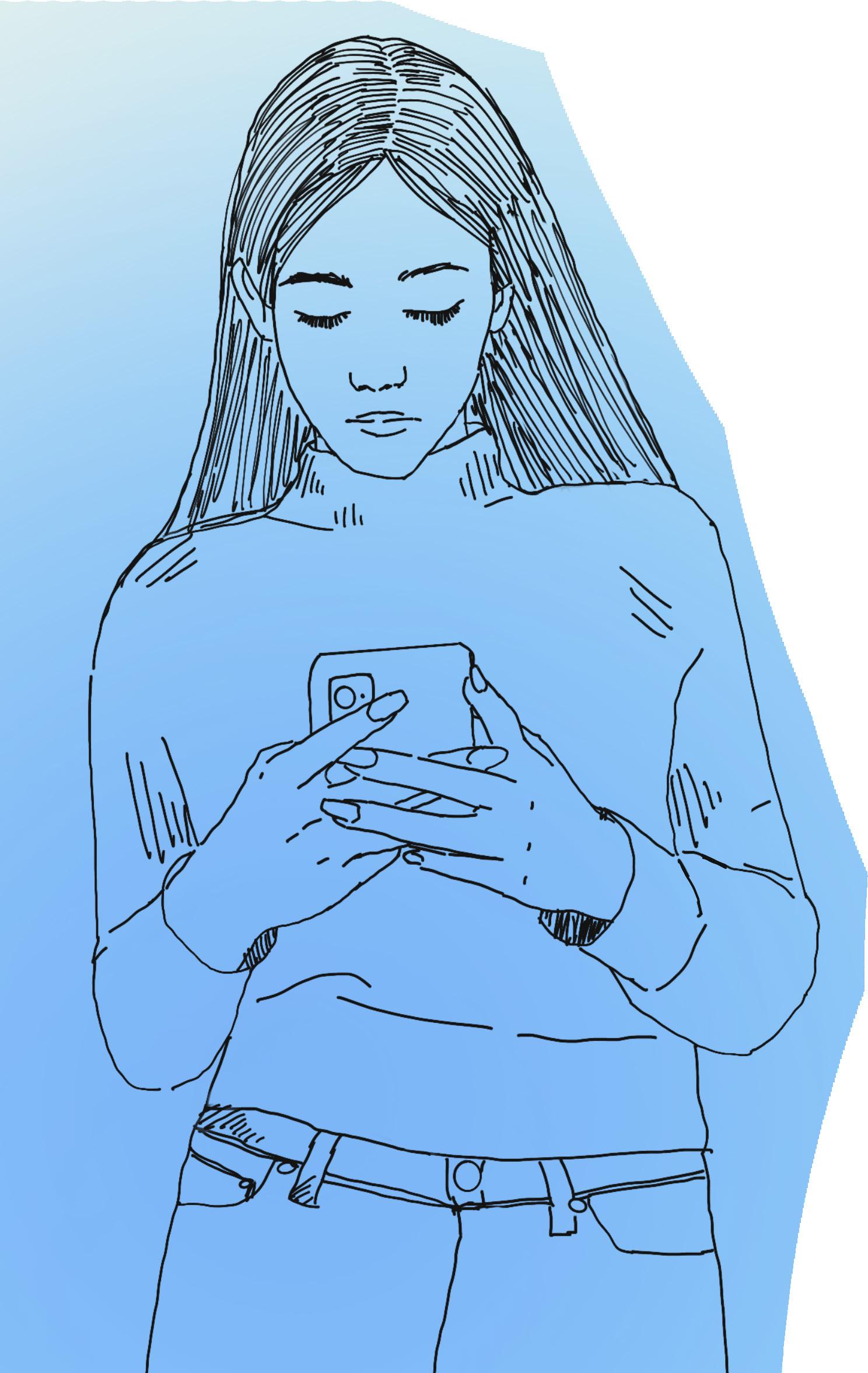

For the majority of my college experience, I was fighting that “ugly reality” everywhere I went. I joined GBO, our orientation program, to be someone who facilitated the development of communities where that kind of competition didn’t need to exist. As a leader, I could act when someone wasn’t given the chance to talk in the group or when cliques started developing; I could fold the people on the margins into the inner circle. I loved that I had that power.
When I joined the Suitcase Clinic, I fought hard for unhoused members to be included in the conversation in city council meetings.
They have the right to be seen and known so that their struggles are not unnoticed. They should get the help they deserve.
And yet—even as I curated this social justice warrior identity where people knew me as one who fights for the cause of others, I could not fill the hole in my heart. The Christian fellowship was some kind of reminder for me that I wasn’t enough.
To soothe myself, I turned to my favorite source of comfort: to-do lists. I created a long list of activities I would have to do for classes or clubs and even created a daily checklist for what habits I should be working on. The checkmarks brought me affirmation that I was on the right path. With every checkmark, I felt closer to my goals and plans. I felt like I could finally call myself a productive college student, a well-prepared, pre-med woman.

As I continued on an achievement rollercoaster fueled by busyness, I found myself increasingly facing burnout. I could no longer confront my insecurities by adding more to my resume. Having an Instagrammable and LinkedIn-approvable life wasn’t providing me true comfort.
It was exhausting. Every failed midterm made me doubt myself. Would I ever be good enough? I was happy for minutes when I completed what I had to do and unhappy for hours when I didn’t. Achievement brought me some comfort but it wasn’t enough.

Friendship was tough. I didn’t know why, but fellowship meeting anxiety never ceased. Why? What was wrong about this community that made me feel this way when I didn’t seem to struggle in the same way in other circles?
I prayed. It was a prayer that God didn’t answer for a long time. During my whole college journey, I asked God why it was so difficult for me to feel like I belonged in this small community. And I told myself that it only happened in this small club, but in reality, I had felt this way in many settings. When I first moved to a new middle school, I definitely struggled to find my place. When I was in that corny Christian dance team during the end of middle school, I definitely struggled to feel at home in the “family” of other Christians. And in high school, I found myself resorting to the busyness of academics and extracurriculars to drown out the loneliness.
And that’s exactly what I did in college as well. I left the fellowship meetings early because I “had homework” or left no time to hang out with others in the fellowship because I “had a club meeting.” I joined five clubs to give me something to do so that I didn’t have time to think about my loneliness. And I was proud of myself for that.
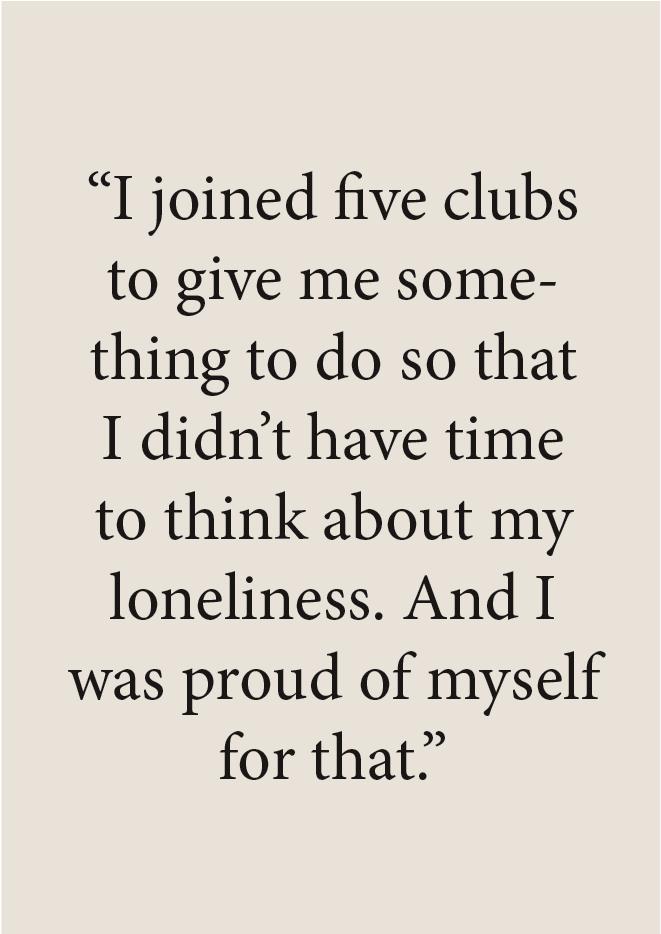
I was too tired to try. Every time I went out, I came back feeling lonely. This culminated in a mission trip I went on over the summer. I was forced to meet students I had never talked to before on top of being exhausted with our daily schedule. I gave up trying to talk to people until the final day when everyone was reflecting on their experience.
One of the students who went on the trip and sat beside me for many of the days had also been struggling with family, mental health, and school. She shared a touching testimony of loneliness that was filled with people not reaching out to her. I felt so convicted. My loneliness had contributed to others feeling lonely. I was part of a cycle of loneliness where I tried to find comfort in not being rejected by others but always ended up not feeling comforted enough.

During my junior year of college, I started a relationship, and I soon realized that my busyness needed to stop. Not only was I constantly burnt out, but I was hurting the one I cared about because I couldn’t be present with him, whatever that meant for our unique personalities.
I was slowly learning to stop.
When I was in the fellowship as a senior, I found myself being able to stop. I stopped my thoughts and sat in the uncomfortableness of my own anxiety. Observed my inability to be fun and witty and cool at the retreat when everyone was there to hang out. Saw how some of my jokes worked and some didn’t. And as everyone giggled continuously and night was falling, I left the circle to sleep early. Quitting clubs and gaining time in the day helped me breathe and think about what had happened.
After that mission trip, I came to see that I was really just trying to avoid discomfort and so I kept to myself more. I realized that moments of discomfort might not have been the source of my deeper discomfort. I saw that God had been with me in all of my uncomfortable situations. The multitude of them that I had experienced in my life were moments orchestrated by God, where I saw Him using my discomfort to create something beautiful within me, slowly but surely. Failing a midterm, being rejected by a friend, and so many more moments only drew me closer to a God in whose grace I could rest in freely. I could stop doing and start being.
As I grew in experiencing God’s grace, I met Christine. She shared similar struggles with me. We were united in trying to understand
where God was in our discomfort. As we felt secure in Christ, we felt as if we could reach out to each other and others around us more. I loved chatting with Carissa once a week. We read a chapter of a book together to talk about God, but also talked about life. My boy problems, her struggles with the MCAT and how we’d felt anxious or at home in each of the fellowship meetings. What I loved best was that if I had no one to talk to at the fellowship, I had Carissa.
We felt so encouraged by our relationship that we were willing to be the ones who would step into the discomfort most. That led to the birth of our fellowship’s hospitality team. God used our social discomfort for our good, and He gave us a friend. We wanted to be the “Carissa” and “Christine” for the new students in need of a friend to help them find God in their discomfort.
For a long time, we were seeking the kind of comfort that is driven by fear. Fear of never being enough, fear of never being loved or known or seen. As we grew in Christ and drew closer to God and each other, however, we started to experience the comfort that is driven by faith.
2 Timothy 1:7 says, “For God gave us a spirit, not of fear but of power and love and self-control.” Comfort isn’t found where we often look for it. It’s found in God, who works especially outside of our comfort zones. Christ overcame the world so we can rest in that comfort, not in ourselves.
Words: Kim Hwang Yeo
The tides rise.

Has the sun risen?
The night comes
The day is one.
Ring in the song and chime
Let the mountains rise
And the seas congress
Let the greens thrive, the seasons preside.


Look, the gems in the sky! as the lights recede they reside Fins sail the oceans As did wings flock the skies

The lands amassed
With all creatures imaginable one in His image
The custodians were so shaped
Hallelujah!
Christos, Christy, Christiana.
Kim Hwang Yeo is a bioengineer who enjoys traveling and reading when he’s not in school.Words: Hannah Kuo
I noticed a stone in my shoe, a little rock of stress lodged somewhere underneath. I was walking in Dwinelle one afternoon, wondering why my shoes made a strange squeaking sound. A weird bump arose every time I took a step.

Eh. It’s probably just the floor, I thought, until I realized it was only my shoes that squeaked.
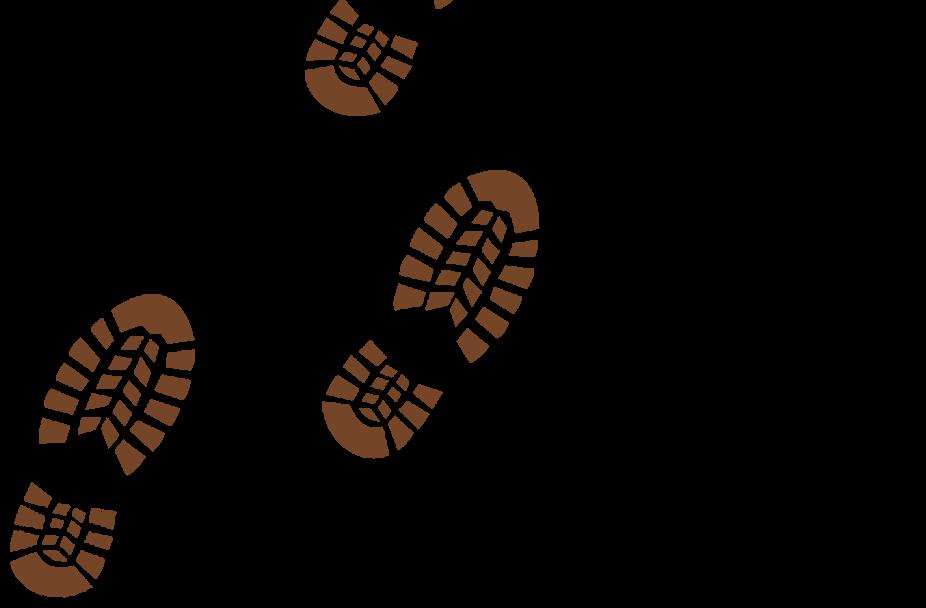
I tried to turn my annoyance into fun by laughing at it with my friends. It was actually kind of embarrassing, like, who knew shoes squeaked so loudly?
Another time I was walking on the Durant sidewalk and the same thing happened. Except it wasn’t a squeak this time. It was more of a scratch. I could feel the vibration up my leg as the rock of doubt rubbed against the cement. I viciously dragged the bottom of my foot on the sidewalk, hoping to get it off, but the stubborn stone didn’t budge.
Ugh, I really didn’t want to look for the stone, though. Who knew what I stepped in? There was probably some other dirt clumped underneath, unrelated but disgusting. Besides, what could I do about it? It’s not like I had anything to scrape it off with—nothing would change.
Still, I shouldn’t complain about something I didn’t have the guts to face. I cringed as I leaned against a wall and slowly lifted my foot. Nothing gross, to my surprise. Just a small, small pebble in the soul.
My eyes roamed for something to dig it out; it had to be something sharp enough to dig into the thin rubber ridges. I found a ledge—the first step of Dwinelle, the edge of the curb, the blade of the Word. Sturdy and consistent, often overlooked, but exactly what I needed. Keeping this in mind, I aimed, then without hesitation or reservation, pushed the stone against the corner and used my entire weight to drag my foot across.
A small release. I heard the faintest clatter, but it felt like something ripped and my heart stopped. I did another quick check underneath. Clean, the sole’s pattern intact. I walked off, my foot light. I sighed in relief, my heart relaxed. It’s funny how forgotten things are remembered, like unclogging memories of a promised prayer, a dependent vow, a once-passionate heart. My mind drifts away towards what’s ahead: my next class, the near future.
My heart rests in the security that no amount of stones underfoot can keep me from where He wants me to go.
Hannah is a second-year Linguistics and CS major who thinks a lot.
“I am amazed at God’s wonderful creation and I find comfort in His promises.”
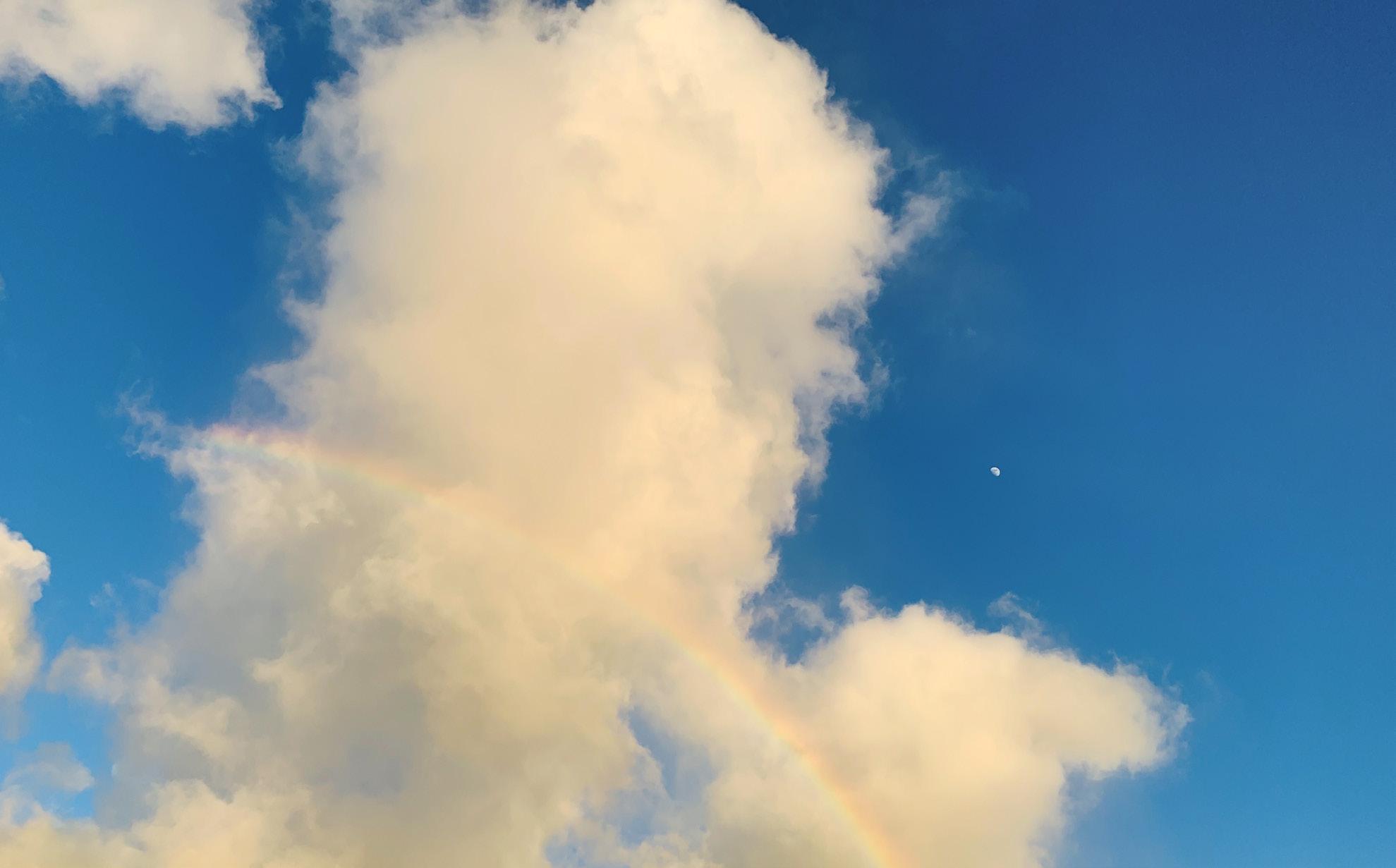
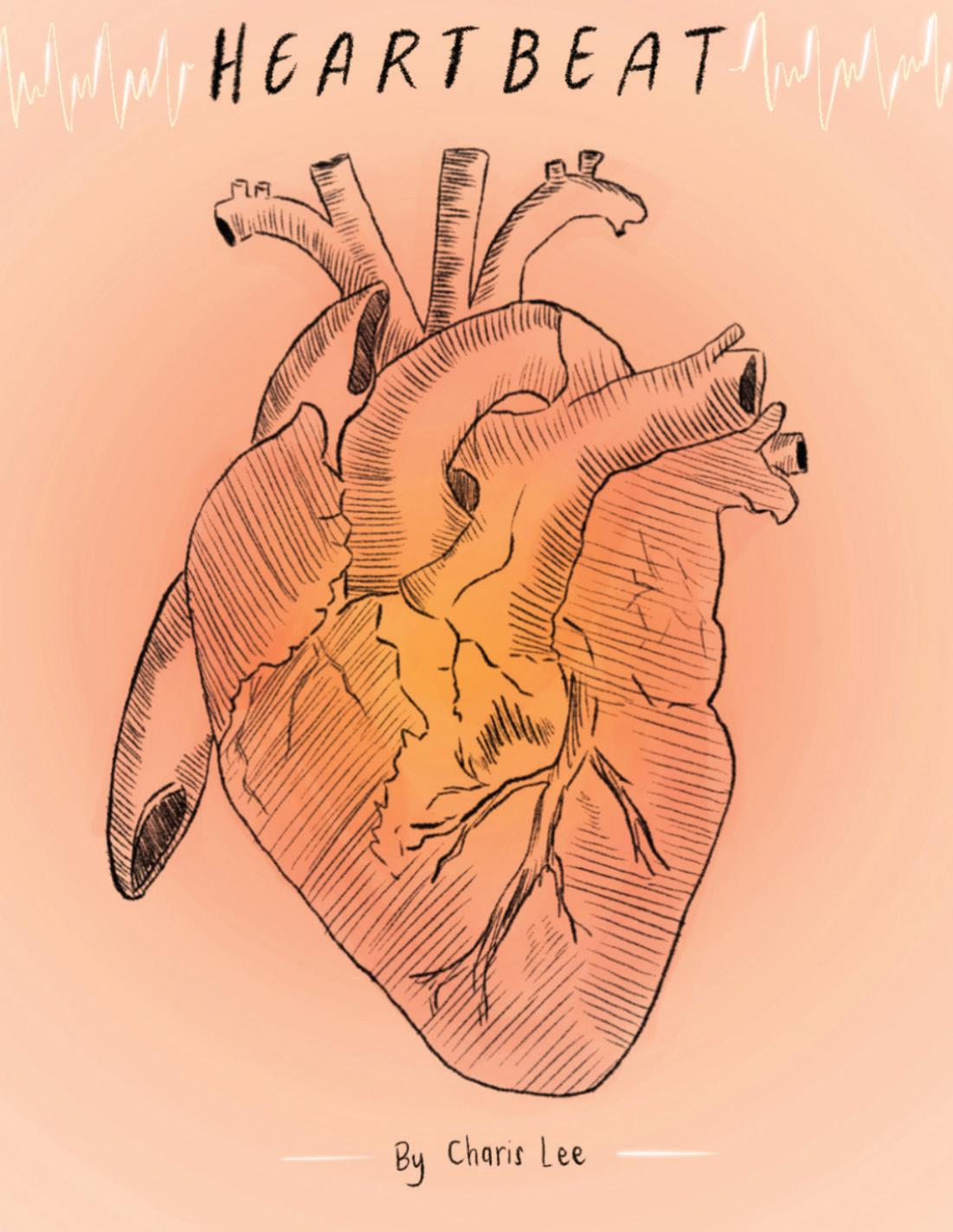
Thump, thump, A rhythmic syncopation with hers.
Head against her breast and swaddled in her arms, I hear the rhythmic thump of her heart’s chamber And the swelling of her breath.
We laugh, we cry, we cherish the moments, Of fleeting time as it beats, fleeting feelings as it thumps.
Thump, thump, ‘Forever’ impressions locked within each rhythm Reverberating memories, echoing her voice Internalizing her love, her warmth, her embrace. My comfort, my mother.
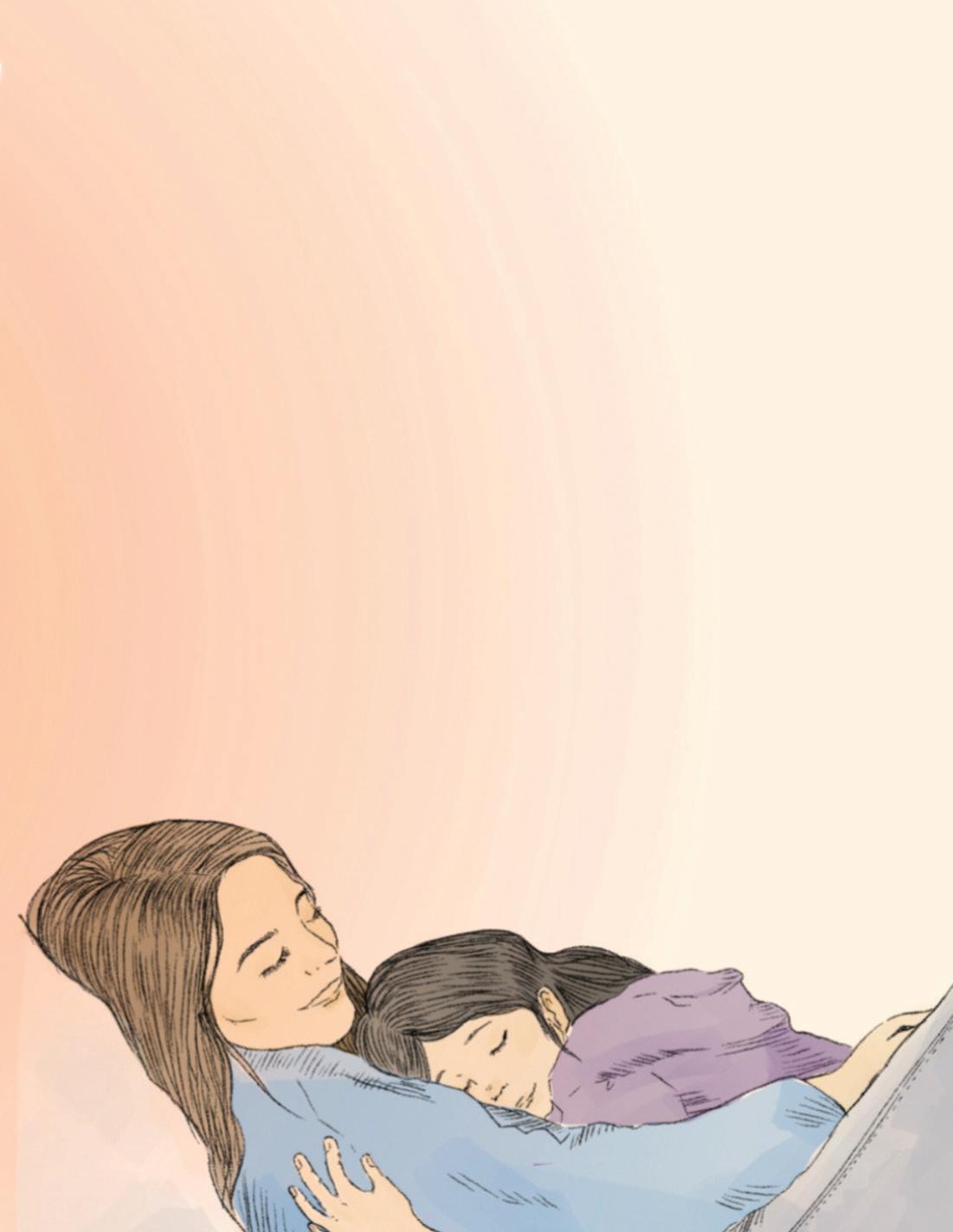 Charis Lee is a Sophomore majoring in English—she never outgrew her 5’7 Korean mother.
Charis Lee is a Sophomore majoring in English—she never outgrew her 5’7 Korean mother.
Heidelberg Catechism Q1: What is your only comfort in life and death?
That I am not my own, but belong with body and soul, both in life and in death, to my faithful Saviour Jesus Christ.
